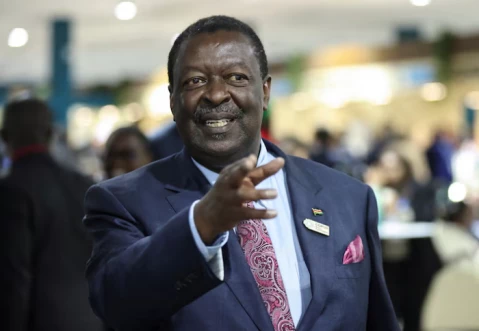Prime Cabinet Secretary and Foreign Affairs Minister Musalia Mudavadi has hailed the Kenyan police service as one of the most professional forces in the world, applauding their dedication and resilience in maintaining law and order across the country.
Speaking during an official function in Nairobi, Mudavadi emphasized that the discipline and commitment of Kenyan police officers have been instrumental in safeguarding peace, promoting justice, and ensuring stability despite numerous challenges.
“Our police officers continue to show exceptional professionalism under difficult circumstances. They are among the most reliable and competent forces globally,” Mudavadi said.
Recognizing the Challenges Facing Police Officers
Mudavadi acknowledged that police officers often work in high-pressure environments with limited resources. He noted that despite the difficulties, the officers consistently uphold their duty to protect citizens and enforce the law.
He further called for continued support and investment in the police service to enhance their welfare, training, and working conditions.
“Professionalism must go hand in hand with support. We must ensure our officers are well-equipped, motivated, and respected,” he added.
Reforms and Global Reputation
The Prime CS highlighted ongoing police reforms aimed at improving accountability, transparency, and public trust. He argued that Kenya’s law enforcement standards have improved significantly over the years, placing the country among the leading nations in security professionalism within Africa and beyond.
Mudavadi pointed out that Kenyan police officers serving in international peacekeeping missions have continued to earn praise for their discipline and skill, further boosting the country’s global reputation.
Public Response and Mixed Reactions
Mudavadi’s remarks have drawn mixed reactions among Kenyans. While some citizens applauded the recognition of police efforts, others argued that the government should focus more on addressing issues of police brutality, corruption, and welfare before labeling the service as world-class.
Human rights groups have urged continued reform, stressing that professionalism must also reflect respect for human rights and fair treatment of all citizens.
Conclusion
Musalia Mudavadi’s praise for the Kenyan police highlights the government’s confidence in its law enforcement agencies and their vital role in maintaining national stability. However, it also reignites a broader conversation on how Kenya can balance professionalism with accountability to ensure the police service truly meets global standards.










